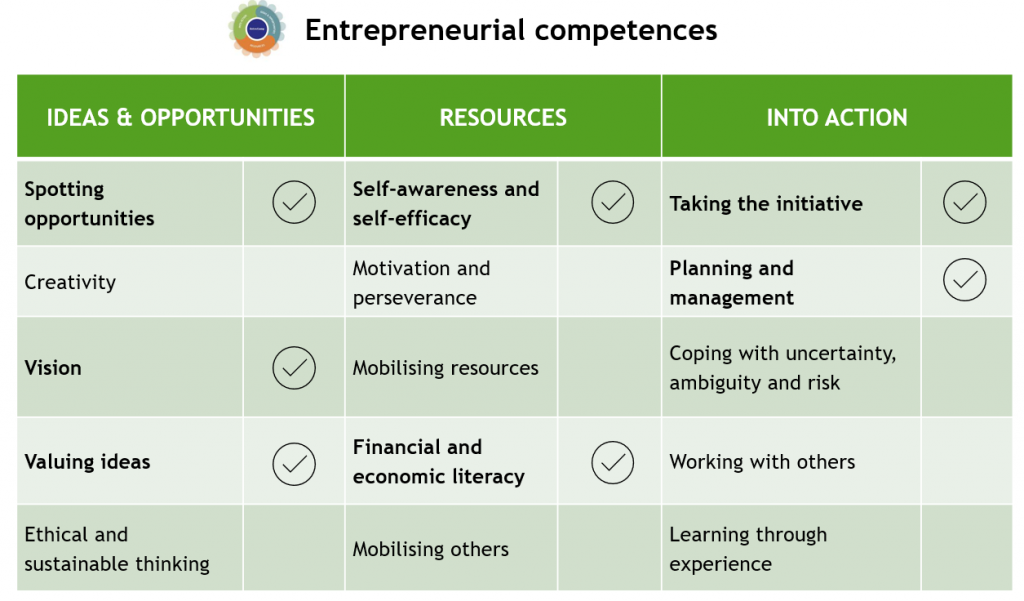Business in EU
Duration: 1 hour
Learning outcome: By the end of this unit learners will know what is essential in order to start a new company in EU and will be aware of women’s entrepreneurship in EU.

| Knowledge | Skills |
|---|---|
| How to start business in EU. | Research skills. |
| Support and funding. | Collecting informational resources. |
| Women entrepreneurship in EU. | Evaluating sources. |
Personal story
Alejandra Beccera (p.24-26) used to work on television as a designer in Venezuela. When one of her friends proposed to her to move to Spain, she decided to give it a try. She took a vacation from her work in Venezuela and came to Spain for 3 months. She ended up liking her life there and decided to stay. At first, she was working as a waitress, an office worker, a call centre manager, hence doing jobs that had nothing in common with her career in Venezuela.
However, with all of her previous experience as a fashion designer on TV and in her studio, she always wanted to start her own business. She was pursuing this direction for a while, sending her CV to various designers, but due to her irregular status the responses were always negative. When she finally got her work permit and it seemed like everything could start rolling, other areas of her life got complicated.
Alejandra recommends everyone who wants to become an entrepreneur to be very eager, strong and not to lose hope: “It can be very complicated due to all the paperwork that needs to be done, but if you like what you do and are passionate about your idea, you shouldn’t put it aside”.
Thanks to this unit Alejandra will learn about what is essential to do in order to start a new business in EU with a special focus on women’s entrepreneurship.
Existing resources: Websites:
Tip for non-EU citizens/ Extra resources It is impossible, in general, to apply for a job in a European Union country as a non-European. The EU demands that employers find someone in Europe first before they can apply to get a work permit to employ someone from outside the EU. However, the various countries do have real shortages and publish lists of occupations for which they will allow employers to recruit outside the EU. If your job is on the list the chance that you will be able to secure a job in Europe increases. Read more about it here: How to find a job in EU as a non-European https://www.eurojobs.com/blog/2018/04/06/find-job-eu-non-european/ For more information about non-EU nationals read here: Employment, Social Affairs & Inclusion https://ec.europa.eu/social/main.jsp?catId=470&langId=en Below you can find the results from EU Labour Force Survey for the 35 participating countries: https://ec.europa.eu/eurostat/web/lfs